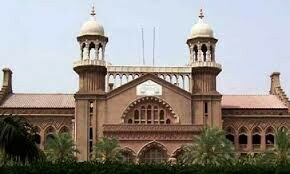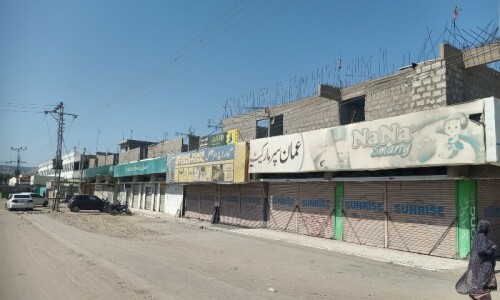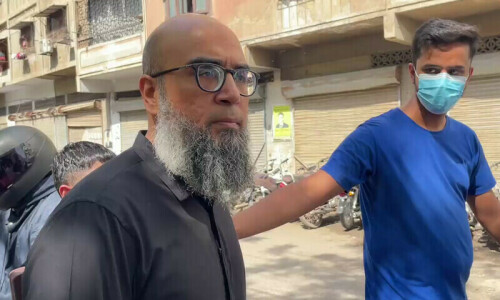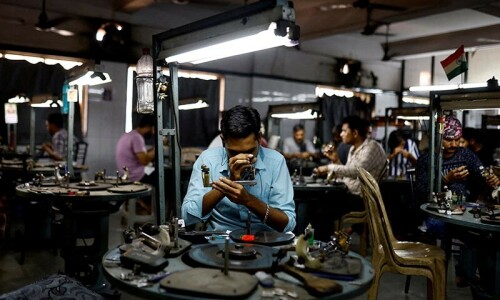• Ban was legitimised by Supreme Court through 1993 verdict
• Bench allows PTI to refile petition against Elections Act tweaks
ISLAMABAD: The Supreme Court’s constitutional bench has admitted for hearing petitions challenging the decades-long ban on student unions in educational institutions — a restriction often blamed for the leadership crisis in the country’s political landscape.
The ban was legitimised by the SC itself in a 1993 verdict in the M. Ismail Qureshi vs Islami Jamiat-i-Talaba secretary general M. Owais Qasim case. In its ruling, the apex court prohibited student groups from affiliating with mainstream parties and barred students from holding positions in university statutory bodies, which would have allowed them to participate in policymaking alongside the university administration.
The two petitions were filed by IJT, represented by Barrister Zafarullah Khan, and a student leader from LUMS Hamza Khawaja, through Barrister Umer Ijaz Gilani. Initially, the registrar’s office returned the pleas with objections. However, after removing the objections, the constitutional bench, a few days ago, ordered fixing of the petitions for a regular hearing.
The bench had during the hearing sought assistance from the attorney general’s office regarding the current legal position and status of student union activities in the country. Consequently, the bench issued notices to the law ministry, Higher Education Commission (HEC), and provincial governments, directing them to submit their responses at the next hearing.
Invoking the SC’s original jurisdiction under Article 184(3), the petitioners urged the court to revisit the 1993 verdict banning student politics under the pretext of curbing campus violence. The identical petitions also requested the court to declare that the affidavit, which the respondents have compelled students to sign, prohibiting them from “indulging in politics”, is of no legal effect for being vague.
The petitions also asked the court to declare that the fundamental right of students “to form associations or unions” secured under Article 17(1) cannot be curtailed except through a law enacted by a competent legislature and that students should enjoy their right to form associations and unions.
The petitioners claimed the ban on student politics is a violation of the constitutional right to form associations guaranteed by Article 17, arguing that such a ban has nothing to do with the prevailing circumstances where campus violence has reportedly declined.
They argued that since the 1993 verdict, constitutional amendments have lowered the voting age from 21 to 18 years, how a university student, who is legally entitled to vote, can be barred from unionising or participating in other forms of political association.
The petitioners argued that campus politics was one of the core institutions for nurturing democratic values and cultivating future leadership. They pleaded that the matter held significant public importance as the ban affects students across the country.
Moreover, the petitioners in this case hail from diverse academic institutions and represent a spectrum of political beliefs, further highlighting the broader relevance of this issue to the general student public. Given the ban was implemented by the Supreme Court, they said, there exists no recourse elsewhere, as decisions rendered by the apex court carry binding authority over all subordinate judicial bodies, including the high courts.
Amendments to Elections Act
Meanwhile, the Constitutional Bench on Wednesday postponed hearing on PTI’s challenges to the retrospective implementation of amendments to the Elections Act 2017.
This came after PTI Secretary General and senior counsel Salman Akram Raja informed the court of his intent to refile the petition, as the original was submitted before President Asif Ali Zardari had assented to the law.
Justice Jamal Khan Mandokhail expressed disappointment and said the petitioners should not have wasted the court’s time if they intended to refile. However, the bench permitted the petition to be refiled.
The original petition was filed on August 7, after both houses of parliament passed the Elections (2nd Amendment) Bill, 2024. The PTI had described the bill as an attack on the Supreme Court and vowed to challenge its provisions.
The petition also requested the apex court to restrain the Election Commission of Pakistan (ECP) from reallocating seats reserved for women and non-Muslims to other parties and to nullify the amended law.
Published in Dawn, December 5th, 2024













































